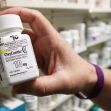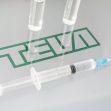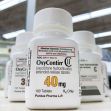Consulting firm McKinsey & Company reached an agreement with attorneys general in 47 states, five territories and the District of Columbia to settle investigations into its role in “turbocharging” opioid sales nationwide. It has agreed to pay $573 million after lawsuits revealed quantities of documents showing how McKinsey drove sales of Purdue Pharma’s OxyContin. This push for sales took place amid an opioid epidemic in the U.S. that has factored into more than 450,000 deaths in the past twenty years. This is the first national settlement to come out of the huge numbers of opioid litigations filed by state, county and local governments against opioid manufacturers over the past years.
Biden’s nominee to lead the U.S. Department of Health and Human Services, California Attorney General Xavier Becerra, said, “They were part of a machine that disrupted, in fact destroyed, lives and families in America.”
McKinsey Global Managing Partner Kevin Sneader said, “We chose to resolve this matter in order to provide fast, meaningful support to communities across the United States. We deeply regret that we did not adequately acknowledge the tragic consequences of the epidemic.”
The civil penalties —-$478 million of which must be paid within 60 days — will be used by the states for opioid prevention, treatment, and recovery programs. Even though Purdue Pharma agreed in October to pay $8.3 billion and pled guilty to federal charges about its marketing of OxyContin, they declared bankruptcy in 2019. For the states party to that agreement, this McKinsey settlement will be the first money they will see.
Members of the Sackler family, who own Purdue, separately agreed last fall to pay $225 million in civil penalties to the federal government. The family denied criminal and civil wrongdoing. They are also in talks with other litigants about paying $3 billion.
Not all states were happy with the October deal, which the Justice Department reached days before Trump was defeated in November.
The amount McKinsey will pay out is supposedly substantially more than it earned from opioid work with Purdue or with its other three opioid-producing clients, Johnson & Johnson, Endo International and Mallinckrodt Pharmaceuticals.
The settlement will not include an admission of wrongdoing by McKinsey, but the company will agree to court-ordered restrictions on its work with some types of narcotics that are addictive. McKinsey will retain emails for five years. It will also put tens of thousands of pages of documents dealing with its opioid work onto a publicly available database.
McKinsey has been a consultant to governments and blue-chip corporations around the world. This is a nearly unheard-of instance of the giant company being held publicly accountable for its work with clients. The settlement is significant because McKinsey has always argued that it only makes recommendations to its clients, which puts distance between its advice and its clients’ actions. For instance, McKinsey suffered little from the crashes of Enron and Swissair, both former clients. That distance has been eliminated with this settlement. In recent years, McKinsey has aggressively moved into helping companies implement their suggestions, not just acting in an advisory capacity.
“Today’s agreement sets a new standard for accountability in one of the most devastating crises of our time. As a result, our communities will receive substantial resources for treatment, prevention, and recovery services,” said Massachusetts Attorney General Maura Healey in an email.
In a statement, McKinsey reaffirmed its commitment to refrain from advising clients on “any opioid-related business anywhere in the world.” Evidence in the case showed that at the same time McKinsey was working to boost its clients’ opioid sales, it was working with governments and other nonprofit groups about how to stem the crisis. The settlement requires McKinsey to disclose potential conflicts of interest to government clients in the future.
McKinsey “sold its ideas” to Purdue Pharma since 2004. Purdue pleaded guilty in 2007 to federal criminal charges that it misled regulators and doctors about OxyContin’s risks. Even after this, McKinsey advised Purdue to focus on selling high-dose pills, which are lucrative. They also advised Purdue to “band together” with other opioid makers to work against the Food and Drug Administration’s “strict treatment” of prescription drug sales.
The records released in the past two years’ litigation span 2004 through 2019. They include documentation showing that in 2009 McKinsey wrote a report for Purdue claiming that new sales tactics would increase OxyContin sales by $400 million annually. They suggested “sales ‘drivers’ based on the idea that opioids reduce stress and make patients more optimistic and less isolated,” according to a Massachusetts lawsuit filed in 2018. McKinsey also worked with execs at Purdue to find ways “to counter the emotional messages from mothers with teenagers that overdosed” on OxyContin.
A 2013 settlement between Walgreens and the federal government required a crackdown on illegal opioid prescriptions. Walgreens’ sales began to fall. McKinsey advised Purdue to “lobby Walgreens’ leaders to loosen up” their adherence to the FDA’s prescription drug sale restrictions, according to the Massachusetts lawsuit.
Also in 2013, in a July 18 report to Purdue’s Board, “McKinsey told Purdue that all recommendations were ‘industry best practices,’ and “These ideas are primarily about implementing industry best practices in execution. These best practices can be adapted for Purdue and rolled out quickly.’ The board took McKinsey, a top consulting firm, at its word,” said Daniel S. Connolly, a McKinsey lawyer.
McKinsey prepared a slide presentation in 2017 with options for bolstering sales. One option was to give a rebate of up to $14,000 to Purdue’s distributors or health insurers for every OxyContin overdose attributable to pills they sold. The slides gave specific estimates that 2,484 CVS customers would develop an opioid use disorder or overdose in 2019 from taking OxyContin. CVS denies that the plan was ever implemented.
By 2018, McKinsey’s senior executives realized there might be liability coming their way. After Massachusetts sued Purdue, pharmaceutical practice leader Martin Elling wrote another partner, Arnab Ghatak: “It probably makes sense to have a quick conversation with the risk committee to see if we should be doing anything” besides “eliminating all our documents and emails. Suspect not but as things get tougher there someone might turn to us.” Both men were given administrative leave (and one source says they were fired), according to a December letter to Congress from Liz Hilton Segel, McKinsey’s North America managing partner. McKinsey will continue investigating whether employees, including the two partners, tried to destroy documents in response to probes.
“As we look back at our client service during the opioid crisis, we recognize that we did not adequately acknowledge the epidemic unfolding in our communities or the terrible impact of opioid abuse and addiction on millions of families across the country,” said a company statement. They later changed “abuse” to “misuse.”
The addiction crisis ramped up again during the pandemic. Increasingly, the synthetic opioid fentanyl is a factor, with more than 81,000 overdose fatalities last year, the CDC reports.
Nevada, Washington and West Virginia were not parties to the agreement with the 47 states. Separate deals were reached with Washington state and West Virginia. The agreement does not prevent the Biden administration from seeking legal action against McKinsey. Several counties and cities across the nation have recently sued McKinsey, including Mingo County in West Virginia. West Virginia is one of the states hardest hit by the opioid crisis.
More than 3,300 lawsuits are pending to hold drug makers and distributors responsible for the opioid addiction epidemic.
North Carolina Attorney General Josh Stein, a leader in the settlement, said, “McKinsey was using its immense talents to help Purdue Pharma sell more pills, and it worked. The number of pills prescribed, Purdue’s profits and McKinsey’s fees all skyrocketed, but so did the number of people addicted, the number of people overdosing, and the number of lives lost.”
“As I have said previously, we are determined to take the steps necessary to strengthen our firm’s risk management policies and culture. We will build on the steps we have already taken to learn from past mistakes, and ensure we consistently meet the high standards our firm has always aspired to,” Sneader said.






